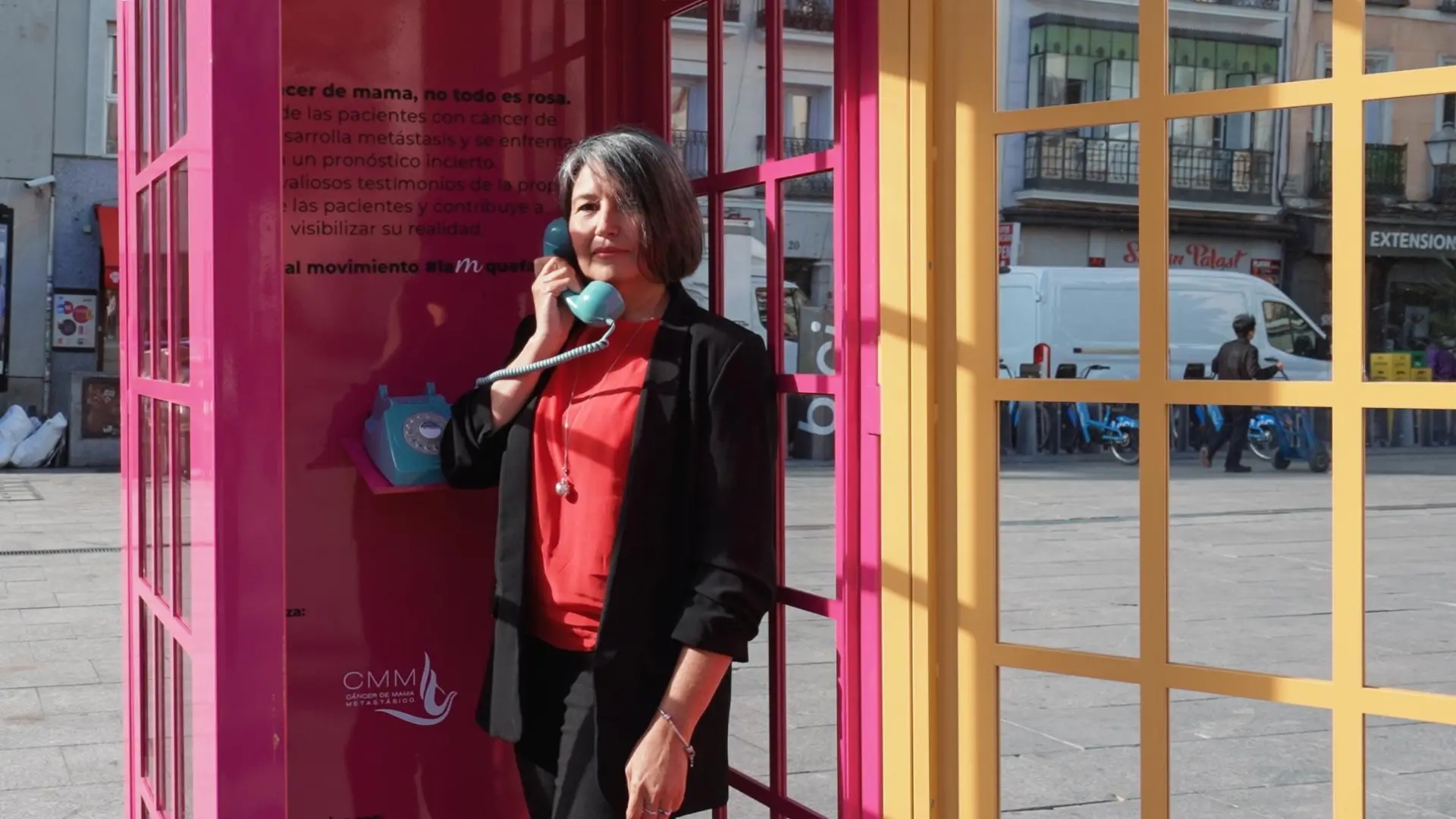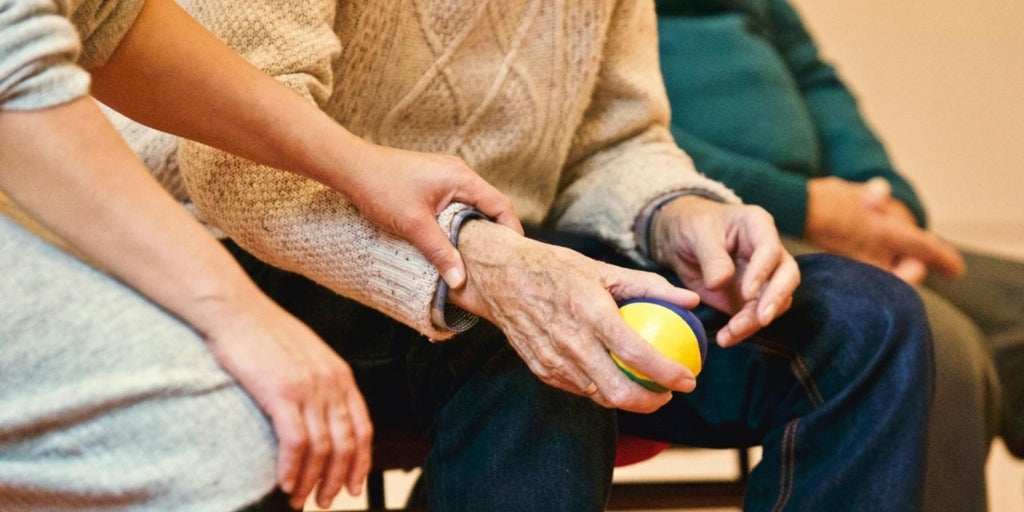Leyre Contreras, a breast cancer patient: "A patient with metastasis lives with the treatment, the side effects, and the fear of dying."

Breast cancer is widely discussed in society, with discoveries that represent an advance in research, increasingly higher percentages of women with a five-year survival rate , and improved quality of life thanks to new treatments. However, there is a variant of this highly prevalent cancer that is discussed and researched much less : metastatic breast cancer.
In this context, the #laMquefalta (the Missing Breast Cancer) movement advocates for visibility, information, and comprehensive care that can make a crucial difference in the quality of life of patients with metastatic breast cancer from the moment of diagnosis. Through a series of booths set up in the street, #laMquefalta Dialogues have been organized by the Spanish Association of Metastatic Breast Cancer (AECMM) and the Daiichi Sankyo | AstraZeneca Alliance to give a voice to patients and healthcare professionals. We interviewed Leyre Contreras, Vice President of AECMM, to hear her firsthand account.
"When you receive a diagnosis of metastatic breast cancer, it's devastating."Listening to the voices of those involved with metastatic breast cancer—patients and healthcare professionals—is key to understanding the complexity of this disease . That's why the association is calling for coordinated action that incorporates the "M" into breast cancer: in fact, as Leyre begins to explain, "it's the leading cause of death in women aged 35 to 55. In our country, almost 7,000 women die each year from this cause."
Regarding that initial moment, the diagnosis, when patients hear the word 'metastasis' in addition to the word 'cancer,' the impact is tremendous. "When cancer patients receive a diagnosis of metastasis, it's devastating. It's difficult and hard to accept that it's an incurable disease, that you have to be on treatment for life , face regular hospital visits for disease monitoring tests, blood work, picking up medications..."
But what's more, this aggressive disease requires "living with the side effects, both physical and emotional , as well as dealing with the impact it often has on work and finances. And that's not even mentioning the extreme worry it causes for loved ones ."
"Ours is not a rosy reality of cancer"In Spain alone, it is estimated that 37,700 new cases of breast cancer have been diagnosed this year, of which between 5 and 6 percent already presented with metastases at the time of diagnosis. Based on these alarming figures, the vice president of the AECMM adds that " there is always a lot of talk about breast cancer , about the early stages, about the favorable statistics in terms of survival. And that reality exists, but it is also necessary in this conversation to make metastatic breast cancer visible."
More than 7,000 women die each year from this type of cancer, "women who die with so many goals yet to achieve and at a crucial point in their lives when they have so much to contribute to society. That's why the 'Missing M' movement is so important for people facing this process. We need visibility and to raise awareness in society about the far from rosy reality of breast cancer. We need more research, and we want not only more life, but to live better, with a higher quality of life, because the treatments are often aggressive."
Incidentally, for those who don't know, 1 percent of men suffer from breast cancer each year , although in their case, since it is much less common, a late diagnosis usually occurs.
"We want to live life to the fullest, but we have to be selective because our strength isn't the same."When asked about the daily lives of patients with metastatic breast cancer , Contreras tells us that "it's a rollercoaster of emotions , sometimes with fear, although we try to savor every moment intensely. Our routine consists of living with regular medical tests, dealing with side effects... and also prioritizing ourselves, making time for physical exercise , resting when exhaustion sets in, and choosing our plans because our energy levels aren't what they used to be. It's a constant and exhausting challenge."
All these reasons explained by the breast cancer patient are what lead them to demand comprehensive support , from physical exercise programs to rehabilitation, structured psychological support, financial aid...
What are these patients' fears? All kinds. "But the main fear of a metastatic patient is dying. It's important to seek support at the beginning to learn to cope with those thoughts. Once you get through that phase, patients have to learn to live with the uncertainty of how long they will remain well, that is, stable and without progression. They have to live with the fear that a day will come when there are no more treatments that work for them."
"To help patients face the disease with serenity, confidence and autonomy""Every woman experiences the disease according to her own personality and circumstances; there is no single recipe for navigating it. The most important thing is that someone who has just been diagnosed knows that she is not alone , and that in the Association she will find a group of peers to lean on, share feelings and knowledge. Also, starting this year, the completely free educational platform is available to any patient with metastatic breast cancer, whether a member or not."
The goal of Educating CMM is "to provide patients with access to clear, accessible, and up-to-date content, based on available scientific evidence and endorsed by a multidisciplinary committee of experts. The aim is to educate metastatic cancer patients and thus help them live with the disease with greater serenity, confidence, and autonomy. Membership in the Association starts at €20 per year ; we are a public benefit association."
What metastatic patients most often mention in support groups is the difficulty in making medium- and long-term plans . Their daily lives are dictated by constant medical appointments and how they feel at any given moment. Insomnia and anxiety drain their energy the following day. Forcing themselves not to miss plans also means they then need several days of rest to recover. Living with metastasis is a daily challenge, both physically and mentally. We need more research for a better life. Any help will be welcome.
20minutos





